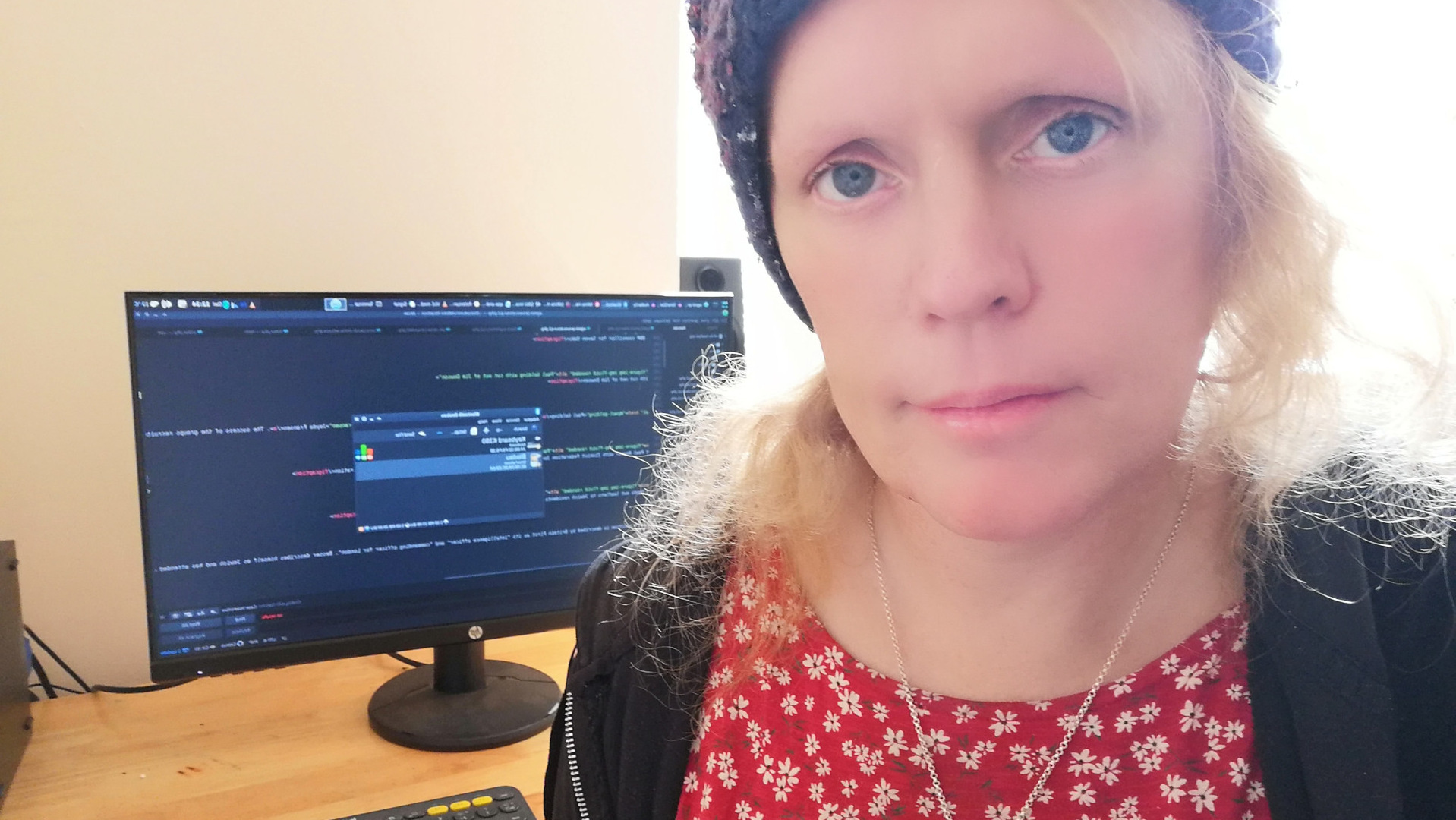Léonie, Truro 14th October 2020
Biography
La vie et l'époque de Léonie Cooper.
To disseminate my experiences of rural life in the Scottish Borders, I have renovated this website. An additional website was previously existing, which documented a decade of travels throughout the United Kingdom from 2011 to 2021. However, a significant portion of this content has been lost.
I have incorporated any recovered content into this current website. This website has been subjected to heavy self-censorship as a result of a state of utter despair that I will attempt to elaborate along these following paragraphs.
Childhood
I was raised in Shepshed, a village that is now a town, after being born in Loughborough, North-West Leicestershire. My mother worked as a factory line worker before becoming a linker in the hosiery industry, and my father was a printer's clerk at Ladybird Books before becoming an author of children's books [ISBN 10: 0721405347]. I have one brother. Even though our father remarried, our vengeful and self-centred stepmother condemned and rejected us as zombies because she refused to understand that we were deeply traumatised. My mother, who was cursed with paranoid schizophrenia, devoiced becoming a single parent when I was five years old. Throughout my childhood I was bullied, denounced as an “alien” or “freak” whenever I was “seen”. These bullies, who were friends with my brother, attacked my right hand with a box cutter, cutting flesh from thumb to index finger. Since my brother allowed them entry into our house, there was nowhere safe or off-limits.
Since 2014–2015, my brother (the only close family member I have) has refused to talk to me. I used to text him “happy birthday” every year until he asked me to stop, and I did. When flesh flies ate me alive in Sri Lanka in 2018, his “dark triad” personality ignored my friend's desperate pleas for help. At eleven years of age, I was placed in foster care after my delusional mother, who was enraged and wielded a cook's knife, chased away a Tory MP who was canvassing. My mother threw away all of our food because she thought a man named "David" was breaking into the house and "raping" her and "poisoning" our food. She was afraid that we, her children, would work together with this supposed intruder to hurt her. When I was in school, I was called "baby blue eyes" by a teacher, who would pull out clumps of my blond hair like a weed from the ground. Another teacher punished me for being vacant by wrapping my hand and then stabbing it with a ruler without waiting for a response. But things weren't all bad. I learned music by borrowing an old, dented trumpet.
Dorothy and Colin, two of my mother's relatives, were benevolent and exerted their efforts to provide for us. However, we were left to rationalise our devices with our mother's delusions, except for the intervention of a social worker. She had been diagnosed with depression at first, and while she was in a ward at Towers Mental Hospital, she was given Electroconvulsive Therapy until she couldn't remember who I, my dad, or my brother were. I found safety in the country because life at home was dangerous. That is, until the day a social worker took me into the city and told me not to look back at the boarded-up windows of the scary house I used to call home. I was a Ward of Court from the ages of eleven to fifteen, during which time I was in the care of social services, temporarily adopted by foster parents, and with friends of the family. I was moved between three different children's homes in Leicester: The Holt (Birstal), Dumblaine Avenue (Rusheymead), and The Oaks (Highfields).
I was unofficially released from government care as a fifteen-year-old who was exhausted, drinking on the streets, battling rejection insecurities, and suffering from fight-or-flight anxiety. No childhood photos of my father, brother, or myself exist because they were all destroyed by my mother using scissors while she was ill. Both of my parents died in 2014; they were both 66 years old. My father died slowly of brain cancer, while my mother died suddenly of a heart attack. The next year, my brother killed me after I signed over half of my mother's inheritance. After being away from my family for ten years, I happened to find two cousins who lived in the South Shields area via cold messaging people on facebook that shared my mother's maiden name. I was overcome with tears as they shared what they knew about our family. My cousins told me about Kenny, our uncle, he had died alone in a nursing home. I recall a Baptist minister from Whitick telling me I was going to hell for listening to Black Sabbath, he also denouned sanctuary I had taken in nature as paganism, this ended Kenny and his wife Edith's brief attempt to care for me.
The same Baptist church attempted to exorcise mother in her home by parting with all of her personal belongings. Since their visit, mother had drawn a chalk circle on the floor and also worn a white glove on her left hand, indicating that she was believed to be possessed. By giving my mother a hug and telling her I loved her, I was able to forgive her illness. Two days later, she passed away. I was detained under the mental health act on Clifton Suspension Bridge after attempting to walk from London to my father's hospice in Brixham along the A4. Despite this, I was unable to resolve my feelings with my father. Additionally, I wasn't told when or where my parents' funerals were, though I later found out that my father's girlfriend of five months took away half of his ashes. When he died, I did not recieve or I guess inherit any of his personal belongings, money, or property. I remember him being very busy with work and his hobbies, which were collecting fossils of ammonites and building control line planes. I think that as a father, he struggled to care for us because he wanted to hit us when we cried over childhood illnesses, which irritated him. It appears that none of my father's family members attempted to improve our terrible childhood circumstances. Despite my brother knowing them, they have never got in touch with me.
During the summer, my parents would transport us to a camp site located along the Gold Cap coastline in Lyme Regis. Our tent was damp and cold, and we frequently subsisted on tinned fruit. Father's fossil hunting was the focal point of the holiday. He drew my arm and walked at a rapid pace to avoid the incoming tide, causing my ankles to strike rocks as salty tears streamed down my face. He was given two crushed and broken fingers for his reckless search for the next Ammonite. My father would take us to chilly, windy, abandoned aerodromes for days out so he could fly his models, surrounded by eerie enthusiasts who watched the adolescent stray wanderings of boredom. I can't recall ever going somewhere with him that didn't meet his ends. Mother baked cakes, prepared Sunday roasts, and was protective when she was well. She persevered despite the severe nature of her prolonged illness, which occasionally left her bedridden, depressed, and drunk for numerous weeks.
Occasionally, she would disappear, walking for miles barefoot and with her feet bleeding. If she was not located by the police, I would be removed by social services. My brother was the victim of the most severe midnight beatings caused by my mother's paranoia; because he was older, he bore the brunt of the false charges of treachery made against us. You have to dig around an empty house for food as a latch key kid, and then you find your mother half-dead with her wrists cut open while running water into a bath.
Activism
Throughout the early to late 1990s, I was an active participant in the road protesting movement. I visited Tywford Down, co-occupied Snailsmore Common, and protested at Syston Common due to my dissatisfaction with the Criminal Justice Act. I went to Claremont Road M11, met the Nine Ladies Anti-Quarry Campaign, and campaigned with Earth First! reestablishing Road Alert! as an online newsletter, hosted by NoLogic.
I fought against Strategic housing in Wiltshire by occupying a site in Highworth to bring attention to a bigger cause. I worked with Pirate TV to make a few short films that were put out on CD-ROM and in the SchNEWS newsletter yearbook. Coldcut, via Pirate TV asked me to design a promotional pack of "Control Cards" for their label Ninjatune, which released Coldcut's song "Everything is under control".
Religion
When I was residing in Herne Hill, South-West London, I discovered Buddhism through a meditation group that met at Brockwell Lido. The Friends of the Western Buddhist Order conducted two weekly meditations that focused on mindfulness. Through this group, I discovered a Mahayana Buddhist meditation group in Soho. Dirk de Klerk, a South African composer, led the meditations, which were supervised by Tibetan Lama Ringu Tulku. After months of meditation, I sought refuge with Ringu Tulku at a Friend's Meeting House close to Euston station. There, I received a piece of paper bearing the Tibetan name "Pema" and a protection cord from Ringu, and I also took additional Bodhisattva vows. While residing in London, I also discovered Hinduism at a Sri Lankan kovil in Tooting. The experience of discovering this temple was akin to returning home after a challenging, extended journey.
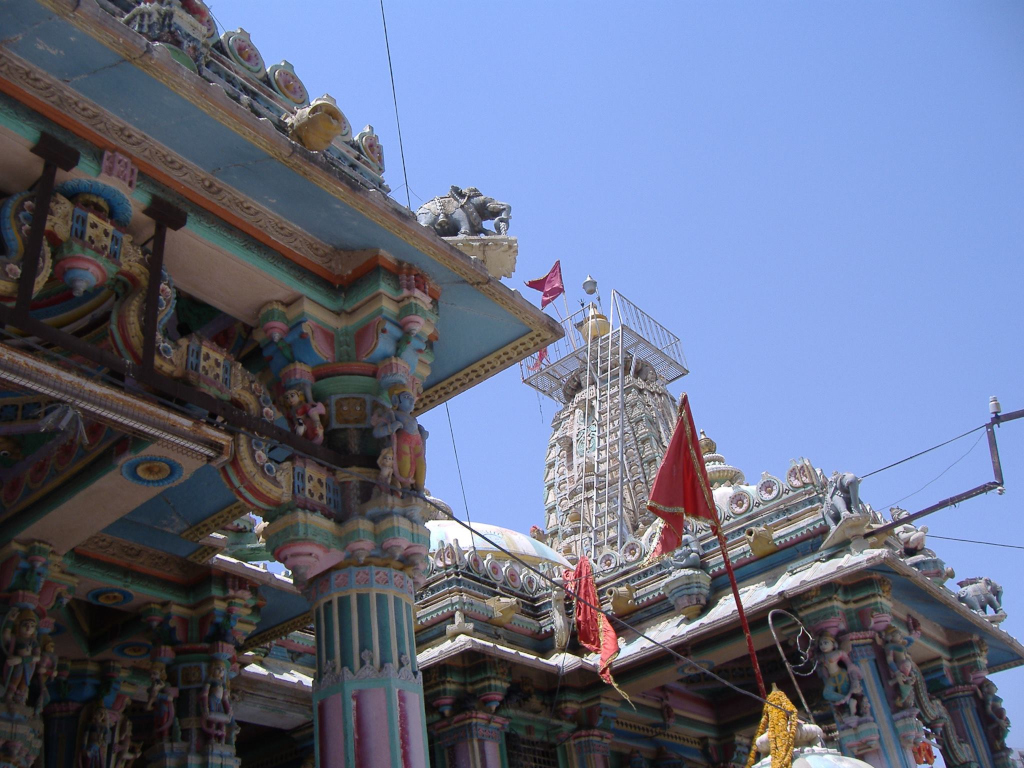
The priests and the temple's community inspired a sense of warmth in me, prompting me to visit twice a week. I frequently indulge in Masala Dosai at Sarkonis, a South Indian restaurant located downstairs. Being at the Kovil was strange because of my race, but I was generally tolerated and even welcomed by a minority. During my exploration of other Dravidian Kovils and pooja shops, I was struck by the light that reflected off the images of various deities. This experience piqued my interest in visiting other Kovils throughout London, particularly those located in the Wembley area, which are inhabited by Gujarati Hindus. I discovered a Kovil devoted to Lahksmi in East Ham, which I visited for several months. I restricted my attention to Dravidian Kovils in Tooting (Muthumari Amman) and East Ham (Maha Laksmhi), where the light was in sync, while other Kovils were a transient, fleeting awareness of Darshan.
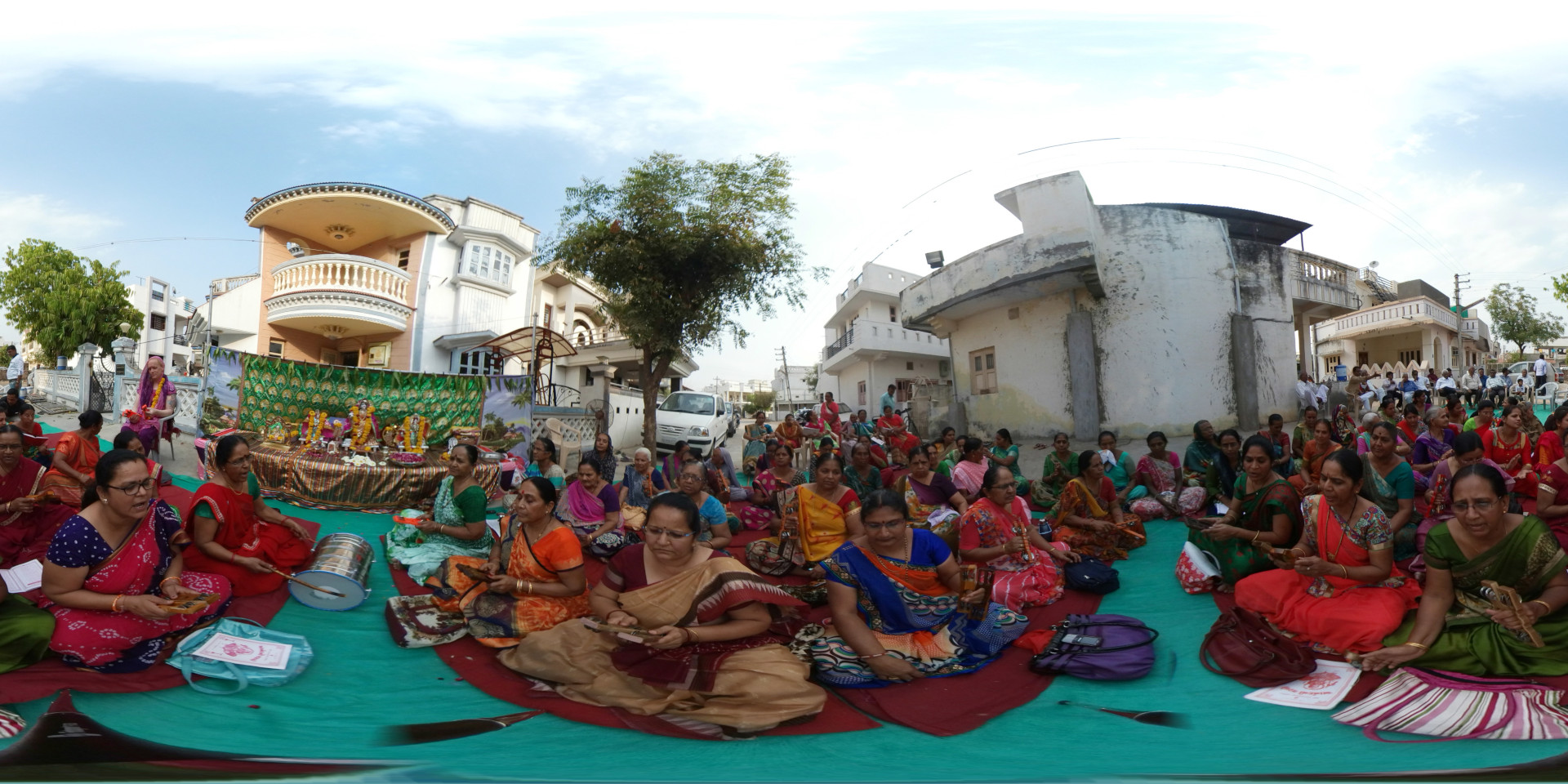
Deciding to travel to India and investigate Hinduism, I obtained a nine-hour flight ticket from Southall Travel from Heathrow to Amdavad. Departing from Heathrow Airport, an Indian Airlines employee searched my luggage zealously, however she stopped when she discovered a Ganesh idol and waved me on with a smile. At Mumbai, I had to switch to a domestic flight. A taxi driver tried to charge me £50 for a two-mile ride, so I walked. I took a taxi to the Ahmedabad railway station since it was a place to go after arriving at the Ahmedabad airport without a hotel room reservation. Jet-lagged tired, I placed my luggage by a seat and rested. After a few minutes, I looked up to see that I was surrounded by a crowd of people. A man who was a tut-tut driver arrived out of the crowd and asked if I had somewhere to go. He replied that there were a lot of people here and that the police would arrive before pointing to his tut tut. He drove me to a clean and affordable hotel, took his cut from the manager, and then approached to inquire if there was anything else I needed after listening to his advice. I inquired as to why individuals had gathered around me at the railway station, and he responded that they believed I was holy.
The tut tut driver informed me of a temple that I should visit in the vicinity of Mehsana. I inquired as to how I could reach it, and I agreed to his return the following morning to transport me to the bus. The 70 km trip was dusty and bumpy, and the seats were made of wood. People on the bus turned around to look at me with interest, but I couldn't speak Gujarati, so I just smiled at them. After disembarking from the bus, I wandered aimlessly down a bustling street that was adorned with market stalls that sold souvenirs. I turned right at the end of this street, passing police officers and entering a fort entrance before entering an open area where a temple was located. Observing the temple's multicoloured carvings, I sought refuge from the sun. A middle-aged Gujarati woman, who was leading a group of Gujarati individuals, approached. I rose to greet her, and to my astonishment, she extended her hand to touch my feet. I observed an energy that linked us to this Hindu temple.
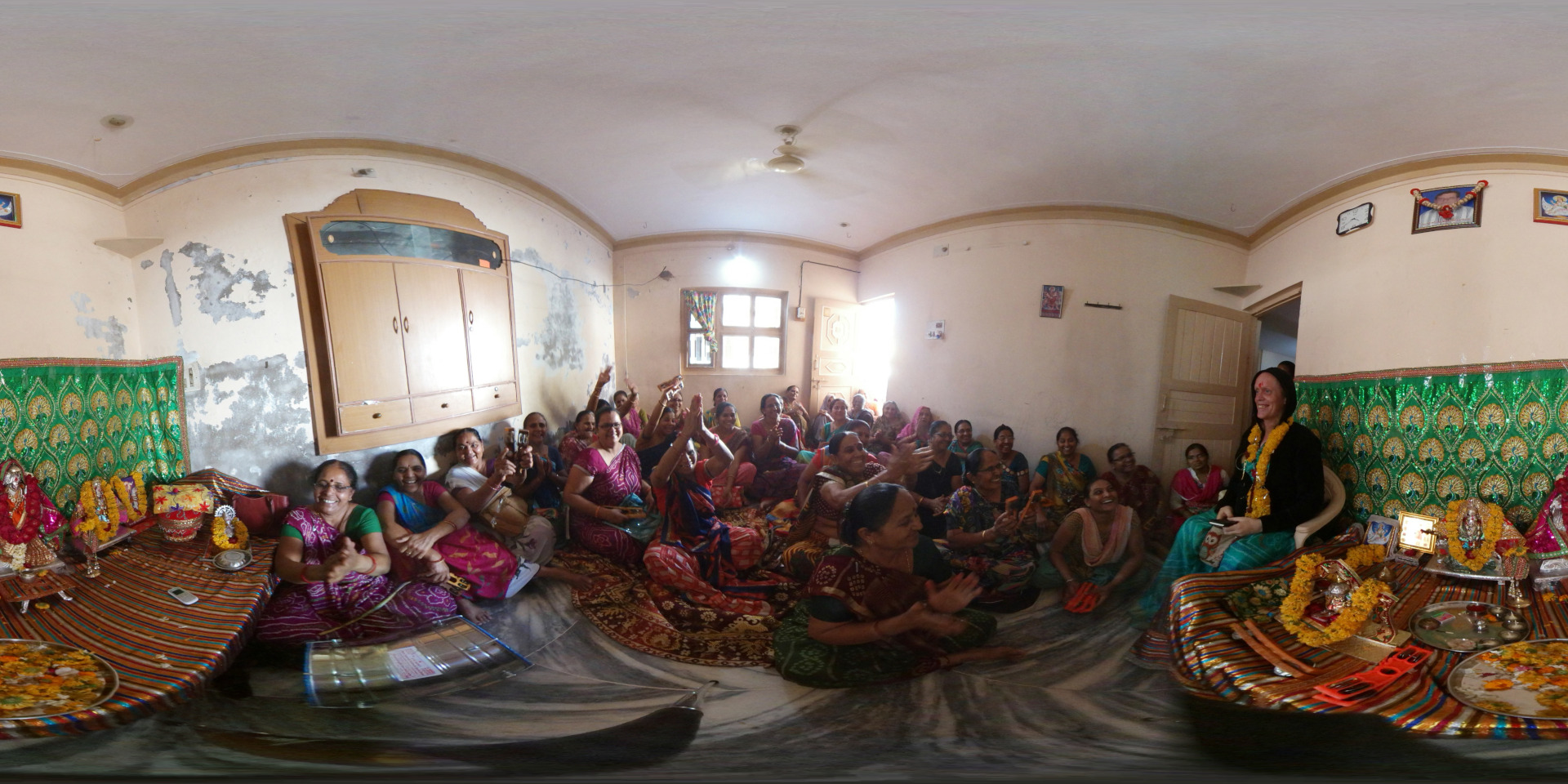
There was a bright light coming from the top of her head. When I reached out, energy spread out like petals on a flower, and time and space disappeared for a moment. When I withdrew my hand, the woman got to her feet, grinned, turned around, and nodded to her group. They approached, patted their heads, and asked me to touch them. After some other people showed up, Hindu priests from the temple came to watch before asking me to enter their temple. They led me to an idol, nodded, and then asked me to touch their heads. I was then taken to the office of the temple's administration, where I told the trustees about my trip from the UK. A senior policeman arrived and asked to see my travel documents after I left the temple with a trustee. A large crowd had gathered. He said that there was nowhere to stay in the town and suggested that I take the last bus back to Ahmedabad. I went back to the hotel where I had stayed before and went back to the temple in the morning, feeling less exhausted and confused by jet lag.
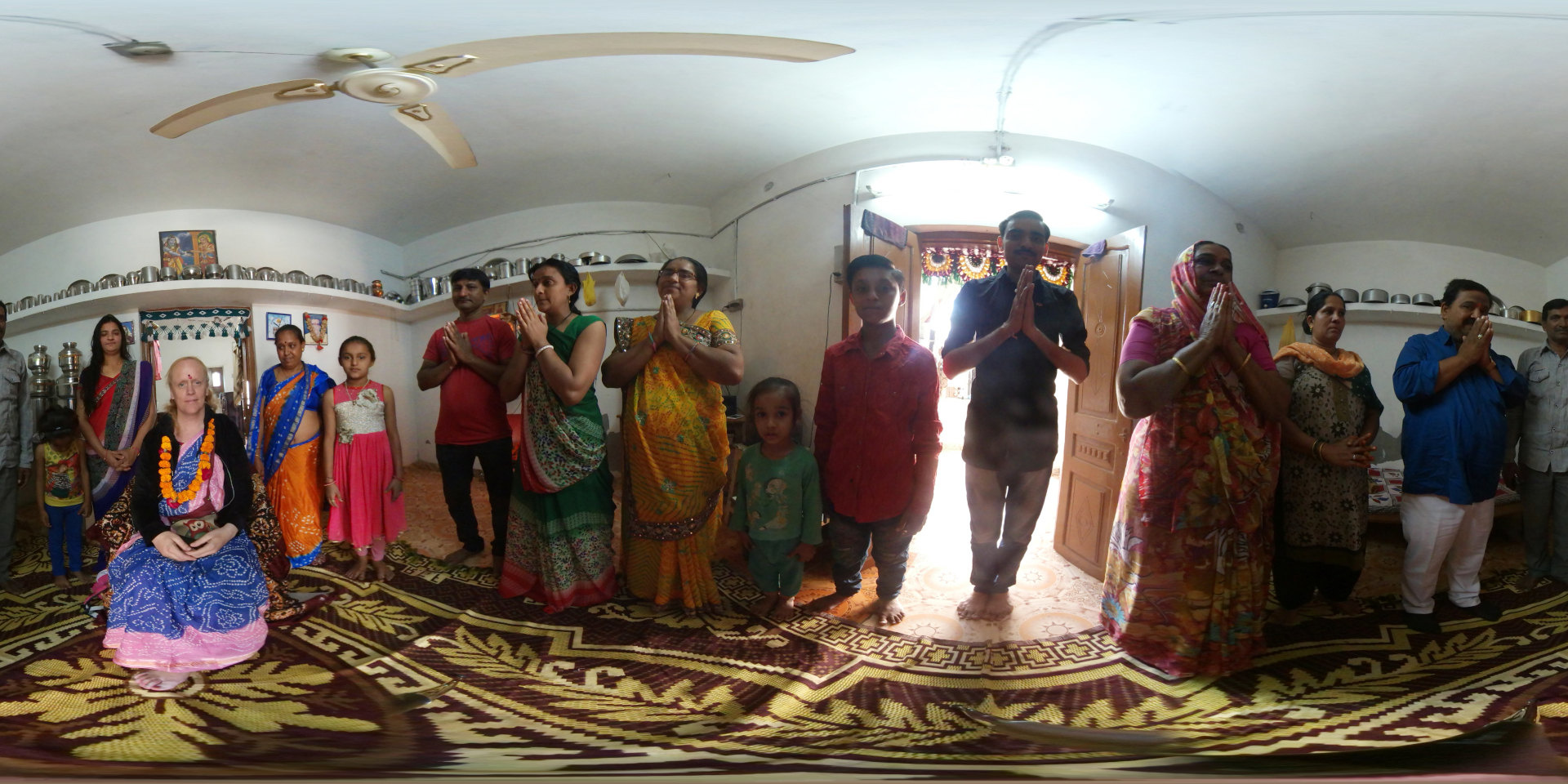
I met countless people during the day, and the temple trust made arrangements for me to stay at their guest house. The room was clean and sparsely furnished, and it was cooled by a slow fan (no air conditioning). The bathroom consisted of a bucket and a hole in the floor for squatting. I was asked to meet with reporters from The Times of India at the Temple office the following day, and they printed a front-page story titled "English Mataji found in Gujarat" after interviewing me. I interacted religiously with thousands of Gujaratis while I was there for six months on a tourist visa. In contrast to expatriate Gujarati "Desi" Indians in the UK, Gujarati Indians in India take great pride in their hospitality; even in the busy streets, they are pleasant, polite, and willing to engage in conversation as strangers in one of the biggest capitalist economies in the modern world.
Homelessness
In 2010, I found myself homeless and living on the streets of Westminster, London. I was sleep-deprived, dirty, vulnerable, and going through worsening derealizations when I was violently assaulted and abused in the evenings in the doorways of a shop where I had tried to hide.
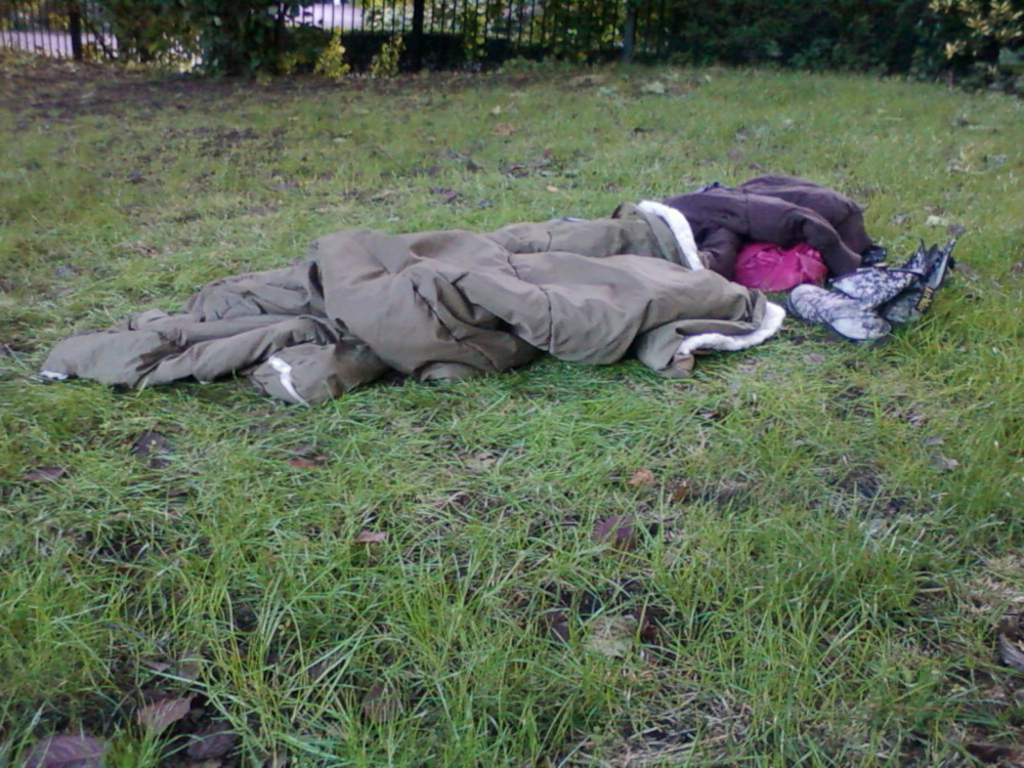
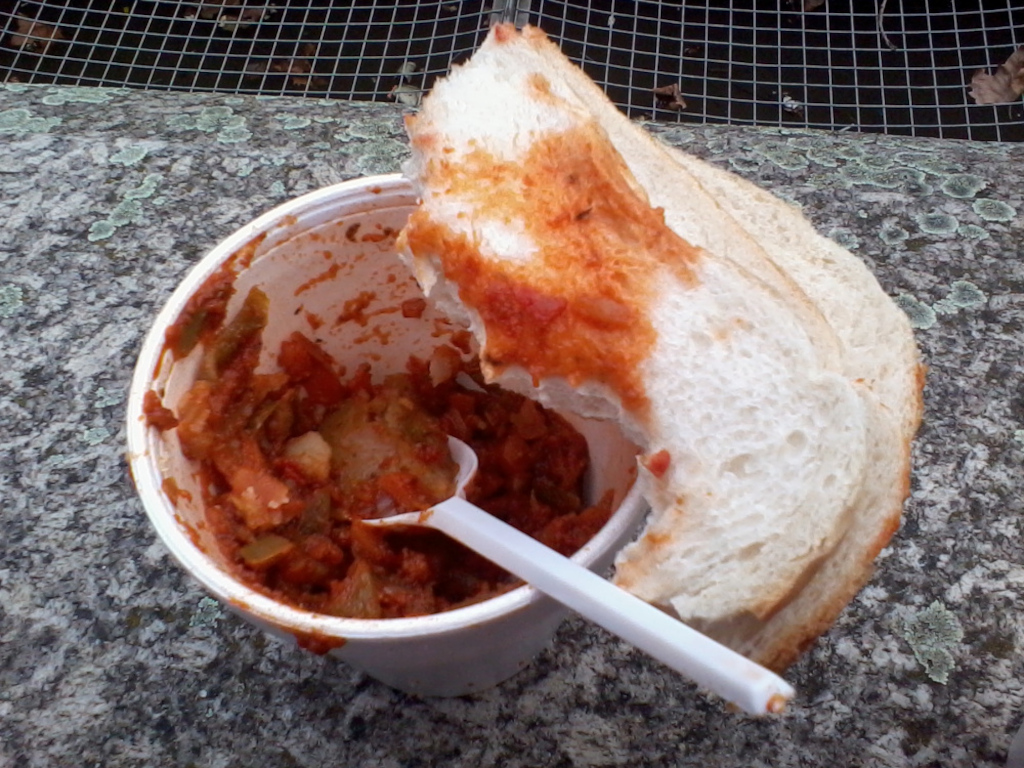
Malnourished, bound by trauma tied by dissociation to threshold of inflicted starvation in eye sight of materialistic abundance, in land ever so plentiful… with a generosity of ignorance. Here inside rotting mouth blooded teeth needlessly cracked and crumbed; from chapped lip a flag of blood and bone lowered without mast onto filthy urine scented paving slab aside where I paled blue with cold, bone rattling, lay denounced.
I attempted to establish a local connection with Manchester City Council to settle down in Manchester. In Manchester's harsh streets, it was almost impossible to find a quiet, empty place to sleep at night. Anxiety would drive me to walk all day and into the night on painful feet. On a random step, the slabs tipped, releasing black water that seeped into my shoes and soaked my clothes. It rained nonstop for days, so I had to sleep and live in wet clothes.
Mental Health
Between 2013 and 2015 I was detained by police and medics, as a danger to myself, seventy-four times under section 136 of the mental health act. Whilst detained on acute mental health wards these psychological attacks did not abate; so disturbed had I become that I locked myself into a shower room and slashed deeply my forearms at Lakeside Mental Health Unit; the bathroom door was forced open, I was taken by a psychiatric nurse to Middlesex hospital, sewn up, then abruptly discharged homeless from the care of the mental health unit a mere two hours later. At Highgate mental health unit I was detained for two months on Amber and Sapphire wards, police had roused me disorientated and hyperthermic, dissociated from the cold, sleeping under snow upon a windswept Hampstead heath. On Amber ward a mixed race friend, also a patient suffered racism by care support workers (of African origin) stating "why are you hanging around with her, remember who enslaved you"; for her protest she was held down and suppressed with anti-psychotic meds; shortly after she was rushed to A&E after suffering an allergic reaction. At Prospect Park Hospital in Reading, a nurse of Filipino origin repeatedly requested I show my boobs to him; my complaints to the hospital administration were ignored. In hindsight, I suspect his inappropriate desires to be influenced by Family International's "She's a Robot".

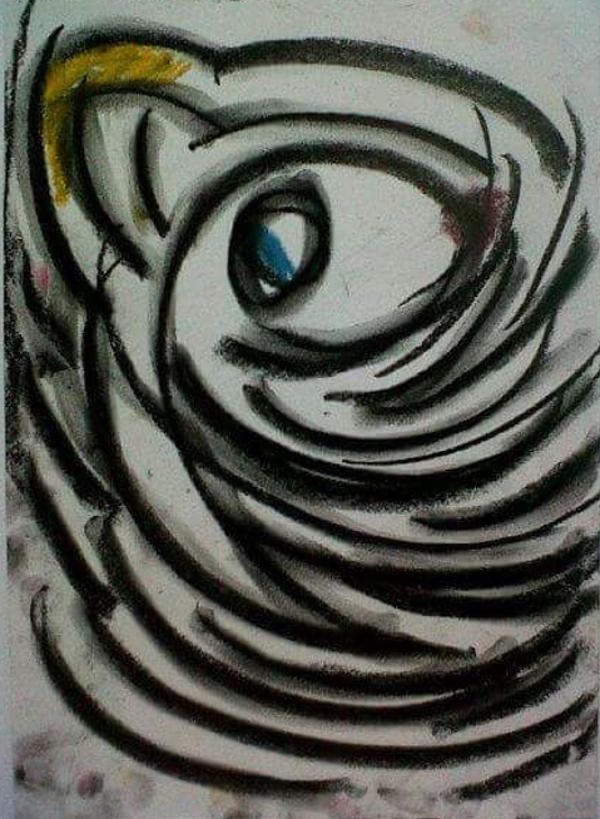
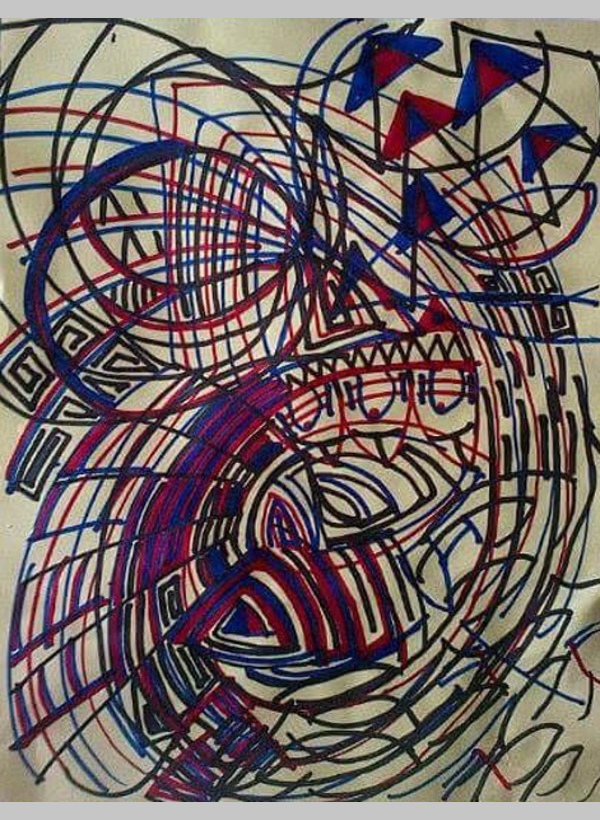
At St Anns hospital (Poole), Section 2 locked down on Merley Ward, I was forcefully injected with anti-psychotics prescribed by two psychiatrists who had wrongfully formulated a misdiagnosis of Schizophrenia from dialogue with my evil, estranged brother. They attempted to lock me down under a Section 3 (six month detainment order) but with an advocate's help I took them to a medical tribunal winning an immediate discharge after a report was presented from an independent psychologist, he had assessed me for two hours, finding not a trace of psychosis. At a 136 unit located at Stoke Mandevil hospital I was detained waiting for psychiatric consultation for almost sixty-two hours; I had been transferred to the unit from Aylesbury police station where I suffered a brief experience of the "deep states" five techniques. Within a prison cell, I was wrestled to the floor by a group of police men, two officers knee pressured my shoulders, another two upon my legs, my wrists handcuffed, my arms used as leverage to suppress my breathing against the floor until I became unconscious whilst a custody sergeant hurled insults. At Melksham police station I was punched unto the cell floor, they exposed my genitalia to the cell CCTV camera; my wrists were so swollen from the incident they took me to Bath A&E for an X-ray before being taken to Green Lane Mental Health Unit for psychratric assessment. In Derby, I was taken to Mary Street Police Station, locked in a cell for eighteen hours without food or water with no contact whatsoever. After administering Diazepam, the arriving duty doctor demanded my immediate release.
Mental Health Section 136, 2 detainments (place of 'safety'), hospital admission and discharges. This is an incomplete list of detainments between 2013 - 2015 which have in the process alone taken six months of my life away.
- Lambeth Hospital (South western), Stockwell, London – Section 2 patient – (Over night stay) – Discharged Homeless.
- Whittington Hospital, Highgate, London – Place of Safety – Section 136 Assessment (1 hour)
- Royal Free Hospital, Belsize Park, London – Place of Safety – 3x Section 136 Assessments (3-5 hours).
- Highgate Mental Health Centre, Highgate, London – Informal patient – Two admissions – Amber Ward (1 month) and Sapphire Ward (4 days) – Discharged Homeless.
- St Marys Hospital, Paddington, London – Place of Safety – Section 136 Assessment (3 hour).
- Oxford Police Station – Place of Safety – 2x Section 136 Assessments 6-8 hours.
- Littlemore, Oxford – Place of Safety – 5x Section 136 Assessments.
- Melksham Police Station – Place of Safety – tortured with stress positions, punched in my face, stripped naked and exposed to CCTV camera [Five Techniques], handcuffed wrists so swollen I was taken by police to A&E in morning to have them x-rayed. Transferred to Green Lane 136 Unit, Devizes.
- Green Lane, Devizes, Wiltshire – Informal patient – Two admissions – Imber Ward (2x 2 week stays) – Discharged Homeless.
- Sandalwood, Swindon, Wiltshire – Place of Safety – 2x Section 136 Assessments (8 hours).
- Southmead Hospital, Bristol – Section 2 patient – Weston Ward (2 weeks) – Discharged Homeless.
- St Anns Hospital, Poole, Dorset – Section 2 patient – Tribunal – Merley Ward (2 weeks) Dudsbury Ward (1 Week) Discharged Homeless.
- Wrexham Hospital, Slough – Place of Safety – Section 136 Assessment (5 hours).
- Prospect Park Hospital, Reading, Berkshire – Section 2 patient – Bluebell Ward (1 month) Discharged Homeless.
- Springfield Hospital, Tooting, London – Place of Safety – x2 Section 136 Assessment (8-12 hours).
- Trinity Suite, Field head, Wakefield – Place of Safety – Section 136 Assessment (3 hours) Given 1 night stay in hotel.
- Cavell Centre, Peterborough – Place of Safety – Section 136 Assessment (3 hours) Oak Ward (Given one night stay).
- Parklands Hospital, Basingstoke, Hampshire – Informal patient (2 weeks). & a section 136 assessment (46 hours) 20/7/14
- Antelope House PICU, Southampton – Section 2 patient (3 days) informal patient Trinity Ward (1 day), discharged homeless.
- Bradgate mental health unit, Glenfield, Leicester – Place of Safety – 2x Section 136 Assessment (2 hours and 2 weeks Bosworth Ward voluntary patient). 14/6/2013
- Lincoln Country Hospital, Lincoln – Place of Safety – Section 136 Assessment (2 hours).
- Langley Green Hospital, Crawley – Place of Safety – Section 136 Assessment (4 hours).
- Radbourne Unit, Derby Royal – 2x Place of Safety 136 Assessment (4-5 hours).
- Park Royal Hospital, Wembley – Section 2 patient.
- St Mary’s police station, Derby – void of human rights, stripped of clothes, ignored for 7 hours & left without food or water for 17 hours [Five Techniques], head butted till blood caked cell door. Section 136 dropped. 27/7/2013
- Campbell Unit, Milton Keynes – Place of safety Assessment (14 hours) 8/8/2013.
- Aylesbury Police Station (stripped naked and tortured with asphyxiating stress positions [Five Techniques]) / Tinmore Mental Health Unit – Place of Safety – Section 136 assessment (30+ hours). 31/8/2013 - 2/9/2013.
- Ward B2 Bassetlaw Hospital, Worksop – Informal patient – 8 week admission, 18/3/2014
- Highbury Hospital, Nottingham – Place of Safety – Transfer, Informal Patient – Section 5/4 & 5/2. Discharged homeless.
- Saint Peters Hospital, Woking – Place of safety Assessment (20 hours) – threatened with anti-psychotic injection, phone SIM and SD card stolen – Section 136 dropped.
- Epsom General Hospital – Place of safety Assessment (20 hours) – Section 136 dropped.
- Becklin Centre (Leeds) – 4x Place of Safety Assessments (2-3 hours) – All Section 136 dropped.
- Lewisham - 1x Place of Safety Assessment (6 hours) - Transfer to Bradage Unit, Leicester 10/5/2013
- Police prosecuted with 'criminal' caution after suffering a huge anxiety attack on J23 M1 motorway bridge. Finger printed, DNA swabbed and had photo taken before released. 9/1/2014
Life during each one of these was a none stop nightmare, tribulations and abuses never ceased, insulted and assaulted, stripped naked, exposed to cameras, force medicated, even when I was deemed a danger to myself or others systematic torments continued.
Prospect Park Hospital is surrounded by a community centre, schools, and Catholic churches. The hospital is situated on the A4 "west" of Reading. A Filipino male nurse has repeatedly mistreated me; he claims to be Catholic, but I suspect he is part of the "The Family International cult." While I was experiencing a severe panic attack, he made numerous slurs, laughed, and derided me as a "he/she." Additionally, he requested that I "exhibit my breasts." I am frequently asked, "Are you from South Africa?" Despite my female body's autonomy, he smiled and said I should use the men's restroom. When I informed him that I intended to submit a formal complaint against him, he began to speak in terse, jumbled sentences and rapidly click his fingers. Hindus are frequently disparagingly referred to as "washing their faces in cow urine.". On my arrival, a Zimbabwean nurse inquired about my interactions with children. I have never been asked these types of questions at any other mental hospitals or units; however, they claim that they have been asking these questions for a year in mental hospitals. I have been kept indoors for six days without any leave despite asking psychiatrists to go outside. Requests for an escorted hospital ground walk and section 17 leave have been turned down by the ward psychiatrist. A few days ago, an antagonistic and hateful female patient came to the ward, and she is currently verbally abusing as many other patients as she can. While the hostile patient got a sweet cup of coffee, the extremely nervous patient victim got an injection and was taken to a secure ward because she reacted badly to her many threats and insults. Despite the hospital nurses' assertion that this is not a prison, I have been confined to my room for five days without the ability to leave, have been subjected to numerous threats of forced medication, and have been instructed to retire to bed due to a midnight patient bedroom curfew. In the end, punishment is administered through the use of a needle for any form of misconduct, regardless of its psychological nature. I consumed meat curry for lunch this time, despite being informed that it was vegetarian. The patients went to Asda and bought eight cheap bottles of cola. An abusive male Filipino nurse walked them back to the ward.
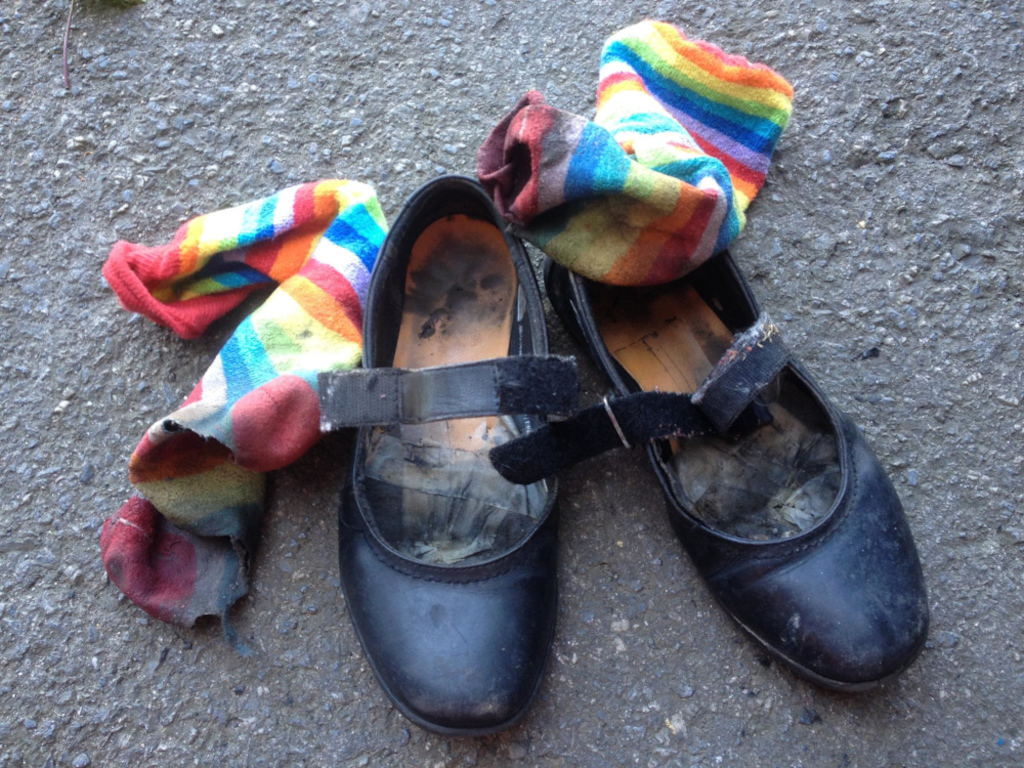
The Weston Ward rounds were conducted at Southmead Hospital in Bristol in the morning, with a half-hour delay from the previous week. The consultation was brief, lasting only thirty minutes. The psychiatrist told me I didn't need to stay in the hospital and that I would be sent home right away. The attending nurse informed me that they would talk about this further outside of the hospital and that they could offer me a hostel. When I exited the consultation room, I informed the nurse that I was hesitant to attend a homeless hostel or night shelter due to the severe abuse I frequently experience from homeless individuals on the streets. She advised me to wait until they could identify an alternative; something else. I first felt anxious, like they were wasting time by keeping me in the facility for something very bad. For an hour, two female nurses aided me in "searching for a place to go." I was placed in the female lounge, which is across from the ward's redundant, partially attached EDU unit. It felt strange to leave the room. I was feeling anxious, so I kept my chakras closed to block out a terrible negative charge coming from the floor. After returning at one o'clock, a nurse gave me a pamphlet called "Surviving Homelessness in Bristol." I gave her a look, shook my head, and asked that the ward's front door be unlocked. Observing me through the two front pillars, the nurse pursued me and extended her best wishes. Without addressing her, I replied, "I will not require it."
During the majority of the day, I walked ten miles from Poole to Bournemouth without shoes on my feet before finally reaching the hitch hiking point at the dual carriageway junction, which is coincidentally named the "Cooper Dean" roundabout. As it got dark, I slept outside of a nearby village hall and tried to get a ride early the next morning. Someone in a coupe stopped and only offered a ride to Southampton. Someone in a small car full of empty beer cans offered a ride to the next northbound intersection, but I refused to go with them. After some time without receiving a ride, I decided to attempt to hitch from another junction. I began to walk northward along the dual carriageway, remaining on the verge to avoid any traffic. A lot of cars were on the road, and they didn't seem to mind that I was walking on the shoulder. When I got close to the next intersection heading north (Blackwater Junction), three police cars with flashing blue lights pulled up. I refused to get in their cars because I had walked the majority of the way and the next intersection was in sight (about two hundred yards away). Police got out of their cars and said they had reports about me and needed to get me off the dual carriageway. They insisted on getting me into the car, and I grudgingly did so rather than witness a traffic jam.
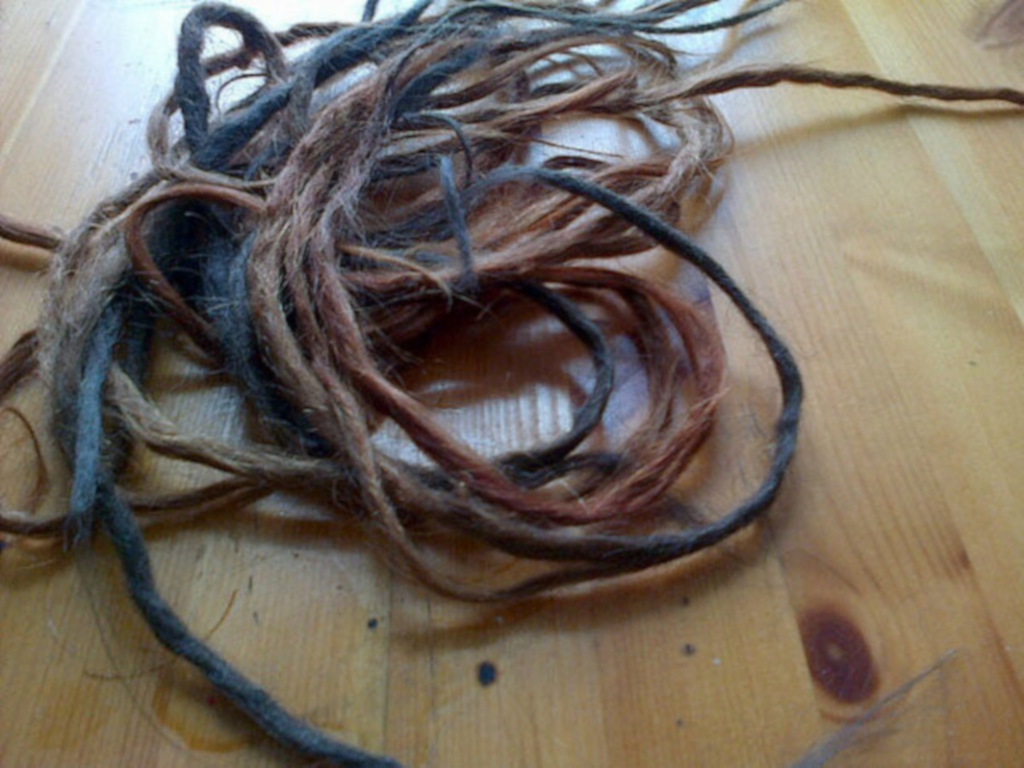
Policeman then drove me to blackwater junction. During a brief interrogation, I informed them that I intended to continue hitchhiking to complete my journey. There was an important question about reports that I had been "seen walking in the road" or "seen by the road." The police radio said that I had been "walking in the road," which is what led the officer to arrest me under Section 136 of the Mental Health Act. I firmly refused to accompany him and attempted to leave, but he grabbed my arm, drew out his CS gas, positioned its canister nozzle inches from my face, and yelled at me to "get in the van." The door of this police van slammed shut after I was flung into a small, waiting white cage. According to the police, they were en route to Bournemouth police station, which prompted me to question why a police station was selected as a "place of safety" rather than a hospital for the purpose of conducting a 136 assessment. I maintained that I was not "intoxicated" or "violent" toward them; however, I received no response. Constructed just two years prior, the Bournemouth Police Station was relatively new and resembled a spaceship. The Custody Sergeant was a reasonable and courteous man who asked a number of questions. I informed him that a section 136 wasn't warranted and that I wasn't walking in the road. I also said I didn’t need to be in a police station, that there had been no criminal offence committed, and I wasn’t intoxicated. As my anxiety began to worsen and almost turn into a panic attack, the sergeant approved the section 136 arrest but also said that a police station wasn't the right place, so he told the two arresting officers to take me to the hospital.
Bournemouth hospital was friendly but felt awkward being kept in rear observance of an unhinged public presence in reception alongside police officers for so long. Eventually, a nurse led me and the police into a room that would serve as a temporary 136 suite. The nurse gave me lunch, which included a cheese and tomato sandwich, a cup of tea, and an oddly bloated orange that I refused to eat. The nurse informed the police that I was to be transferred to St. Ann's mental hospital in Poole after leaving and returning. I was subsequently returned to the location where I had spent the entirety of yesterday, painfully hobbling ten miles without shoes. Part of Ann's Hospital is a construction site that is situated between a modern unit and an ageing, century-old hospital building. It felt like the unit was closed in, which was worsened by the narrow hallways and many locked magnetic key fob doors that separated them. The red brick unit had tiny rectangular green windows and metal grated air conditioning that had been broken for a long time, but the rooms weren't that small. I remained in the 136 suite for approximately six hours to facilitate the formation of a team to evaluate my mental health.
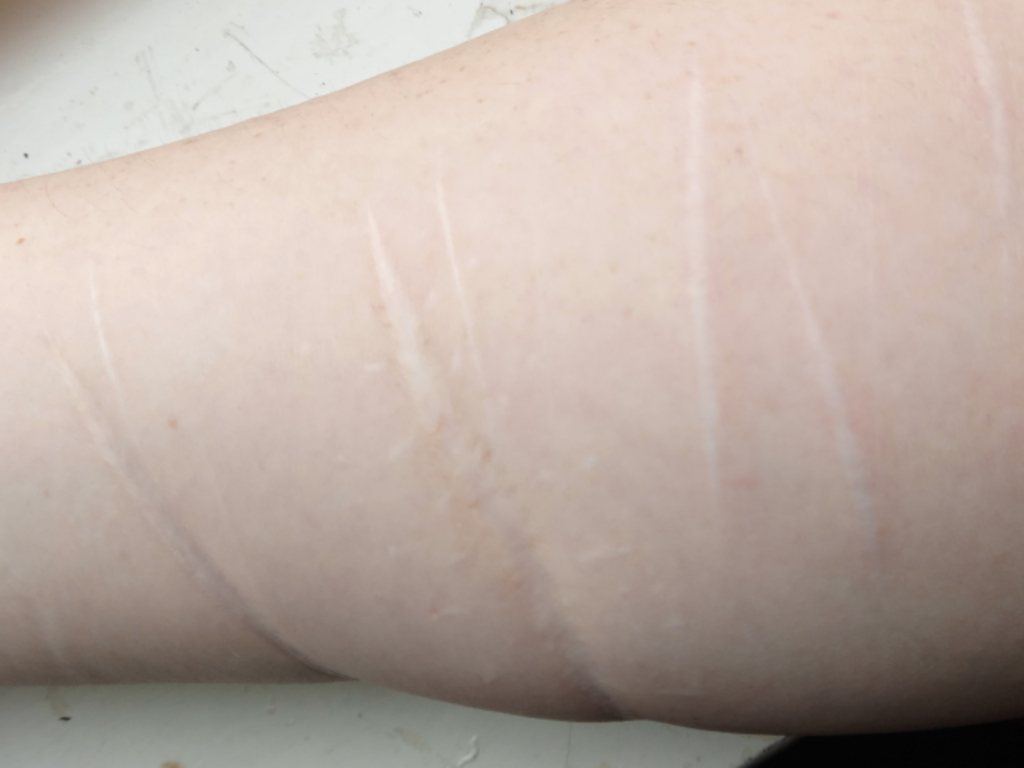
The evaluation appears to be fair, and during the consultation, I realised how severely swollen my feet were. The soles of my feet, which were adorned with shards of glass and thorns, had developed an unsightly swelling, causing my toes to curl up. Dissociation is becoming harmful to my mental health, which I think is mostly because I've been through too much trauma and pain. Because I had lost so much weight and could hardly walk, I agreed when the 136 team asked me to come to the hospital. With so many patients coming and going, the AAU ward is quite busy. Overall, the people here were friendly. The South African psychiatrist seemed to believe that I was experiencing negative symptoms of schizophrenia, which I vehemently denied. He made numerous suggestions of using anti-psychotic medicine but couldn’t force the issue as I was there as an informal patient. After a little more than a week on Merley ward, I was moved to Dudsbury ward. The Duchess ward was in the left wing of the old hospital building. Its rooms were clean, big, and had high ceilings, making it very different from Merley ward, which was crowded and small.
The Indian psychiatrist at the Dudsbury Ward conducted my consultation on the eve of the harvest moon. She was not particularly amicable; she became quickly upset, lost track of chronology, and outright accused me of causing the delusion of hundreds of thousands of Hindus during the consultation. She told me that my energy was just a false sense of grandeur and that she agreed with the South African psychiatrist that I was schizophrenic and would be giving me anti-psychotic drugs. Furious, I stood up and walked out of the room without saying anything. As I walked outside, I informed everyone that I was leaving the hospital and quickly began to gather my things. As I walked down the ward hallway with my bag in tow, I was stopped by a nurse and the ward doctor. They led me to a room and told me they were sectioning me under Section 5/2 of the Mental Health Act, which means I could be locked up for up to 72 hours. The nurse approached me during dinner and offered me oral anti-psychotic medication, which completely derailed my meal. Refusing to do so, I asked the nurse not to bother me about it again. The following few days became increasingly uncomfortable, as if I were a prisoner inside. My subsequent psychiatric consultation resulted in a section 2 (up to 28 days detention) order that required me to take risperidone, a potent anti-psychotic drug. Something prompted me to attempt to open the hospital ward door before six o'clock. Upon pulling, the door swung open, allowing me to quickly flee. Before being apprehended by nurses, I had reached the hospital's main entrance. I was then escorted back to the ward and then to my room, where a group of approximately eight hospital nurses were awaiting to restrain me and administer a "test dose" of risperidone.
I fought back without hitting back for five minutes until they pinned me face down on the bedroom floor. They gave me an injection in my left hip and then held me down for five more minutes while telling me I was too hot and to calm down. After approximately thirty minutes of gradually withdrawing, the surplus nurses eventually departed. The injection caused some terrible side effects and took around three hours to get into my system. The following day, the light became brighter, and the change in sunlight felt as though it was burning my skin. The ball/knuckle joints in my hands swelled and began to throb with pain. My heart was palpitating, and my anxiety was heightened. My eyes felt as though they were dragging to one side. A little over an hour after being sectioned, I asked for a tribunal hearing to get rid of this unfair section and the false accusation of mental illness. After spending eight days on Dudsbury ward without being allowed outside on ‘escorted’ leave, I was left feeling very claustrophobic. Refusing to talk to the nasty Indian ward psychiatrist, it was decided best to transfer moi back to Merley (AAU) ward. A week later, the tribunal took place on a Friday. I was scheduled to receive a larger forced medicated depo of risperidone in the morning, just an hour before the tribunal. However, I was fortunate enough to have this rescheduled upon request. An independent psychiatrist said he didn't see any signs of psychosis, and the long statement from the Indian psychiatrist was full of mistakes, so the tribunal panel agreed to let me leave St. Ann's hospital. My mental health lawyer said it was a rare thing to happen, to be discharged. After an hour, I ate, put my things away, and left the ward/hospital.
I was sectioned at the Highgate Mental Health Unit on numerous occasions, and they maintained that my presence was voluntary, despite informing me that I would be detained if I attempted to leave. Panic attacks came, that feeling of everything rushing away, pinned high to apprehensive immobility would be unbound by forget-me-not pills named lorazepam. Some patients had complicated medical conditions; one Chinese girl referred to me as a princess, and another man of African descent thought he was the King of England. I became friends with a West Indian woman who said she was half Indian and had a record label contract. She reacted negatively when nurses questioned her about why she was with me, telling her to "remember who enslaved you." After accusing them of racism, she received a forceful injection and after experiencing an allergic reaction, was brought to the Whittington, where I kept an eye on her. I also befriended another West Indian woman who had been there due to an atopic pregnancy; we'd have lengthy conversion until she tired, retiring to her room. There was an American woman there who touched her computer screen while wearing gloves. One evening a huge man came in filthy from the streets, I complained about him hovering over the food and was punched into the air, landing six feet away, crashing through tables and chairs within the canteen. Care support workers and nurses were either good or horrifically bad, doctors consultations mesmerising.
Ward rounds on Sapphire ward commenced at 10:00 a.m. on Monday. Just before 11 a.m., the nurse called me into the consultation room. I was asked a number of questions by a friendly Greek psychiatrist regarding my experiences. After suffering half an hour of my mad professor rant, he declared I wasn’t psychotic; however, he told I needed deep therapy from trauma related problems. The three-month stay at the Highgate mental health unit was deemed inappropriate in light of the events that transpired during my previous month in Amber ward. Consequently, it was determined that I would be discharged back into the streets of London. I felt it was a kind gesture when the therapist offered to write a letter supporting the accommodation. Nothing was broken in the Sapphire ward, it was spotlessly clean, the nurses were polite and decent, and the patients were all very friendly. This was very different from my previous stay in the Amber ward. After being released back onto the streets, I took cover in Highgate Library while the rain kept coming down. Eventually, I arrived in Borough for the night after walking southward. This journey was akin to a dissociative tunnel, in which everything to my left and right was obscured, resulting in a surreal experience.
Adventurer
After a insufferable four years terrorised on Britian's streets I pulled myself out of confused apathetic slumber, and embrace fortitude, focussing on becoming a wildness adventurer. Among other national footpaths I hiked the South and North Downs, The Ridgeway, Offas Dyke, Cotswold and Monarch wall and the Trans Penine and Southern Upland way.
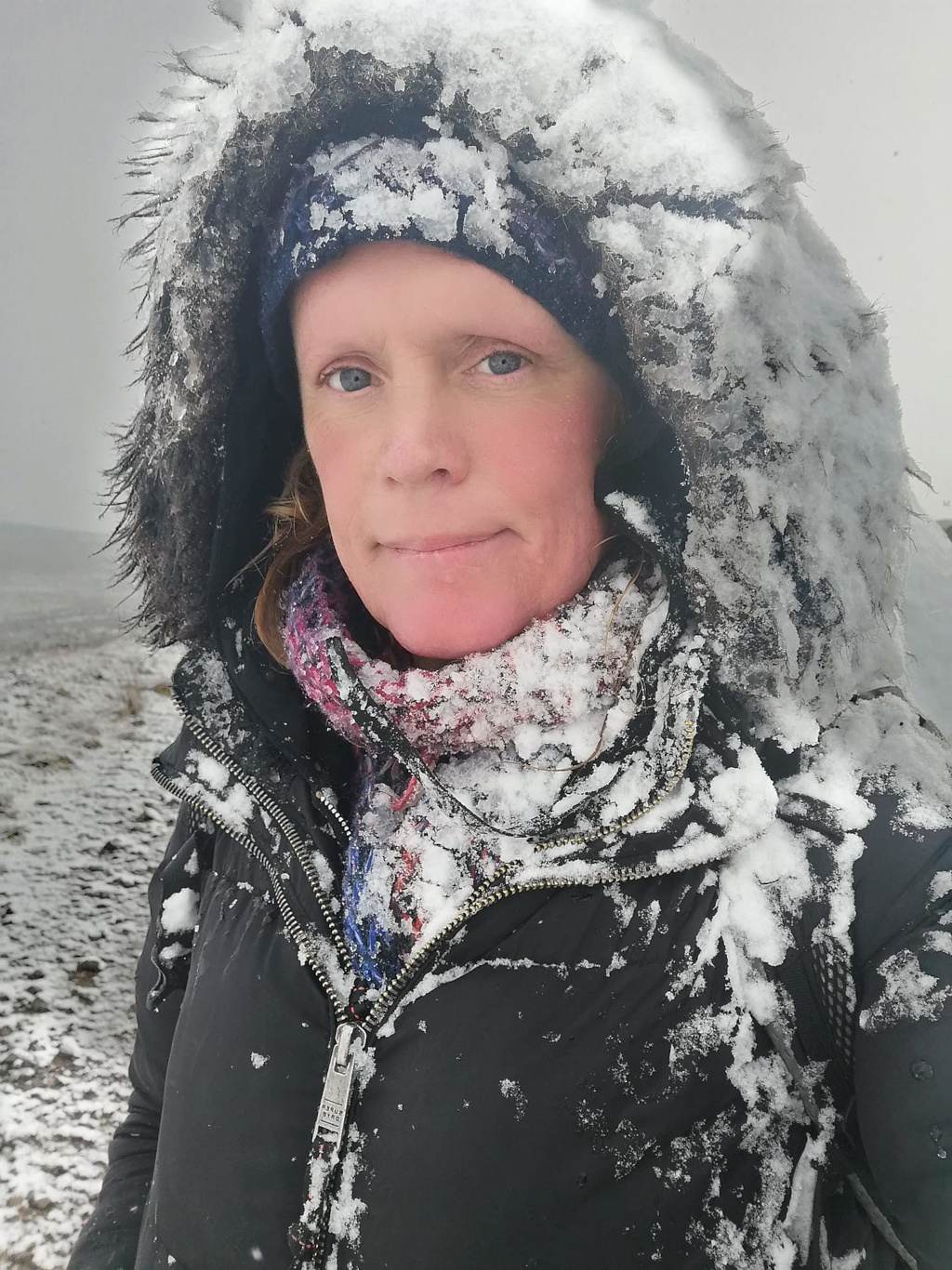
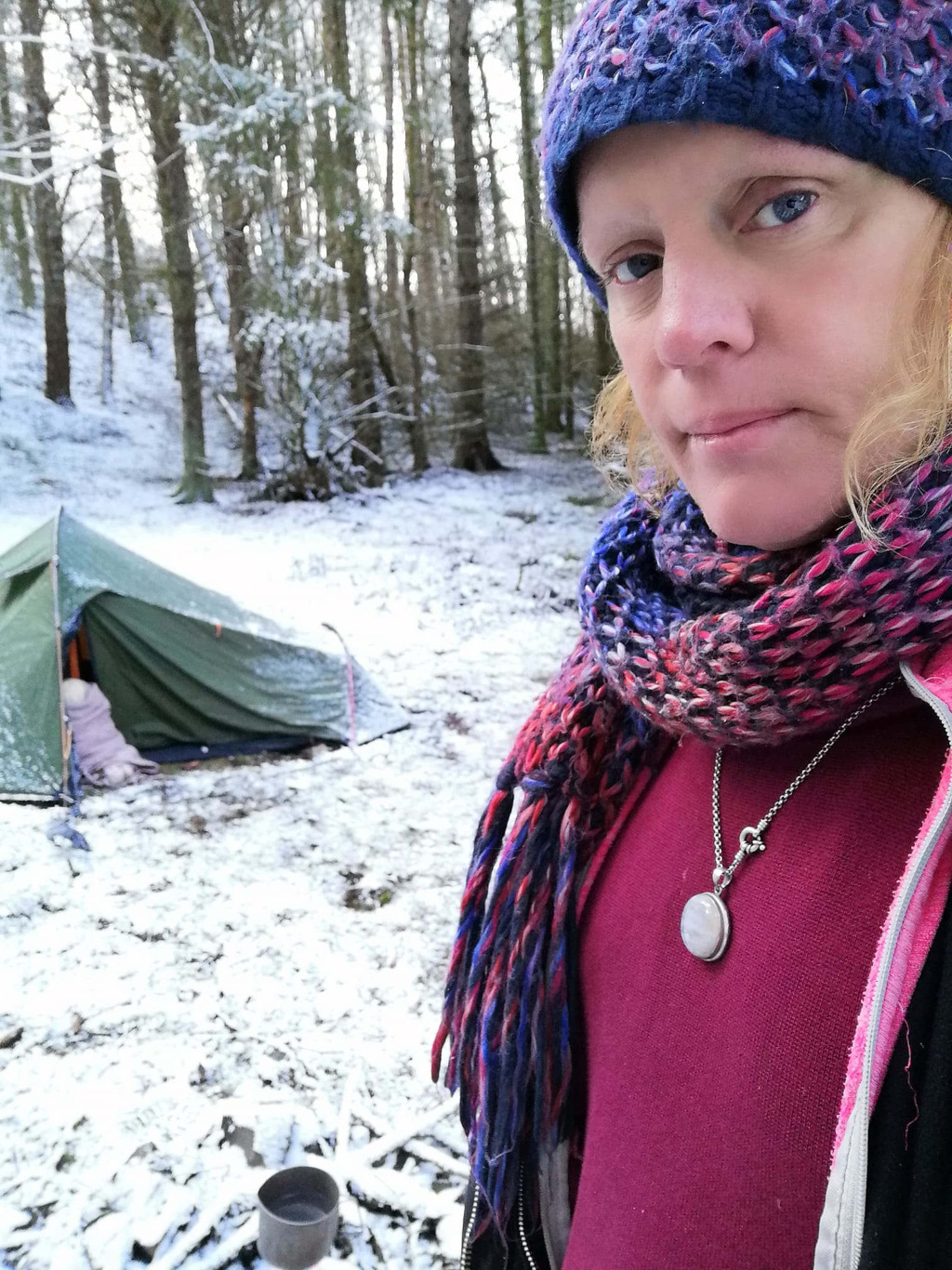
Charlie
I met Charlie while hitchhiking out of Selkirk, and we've been together for almost three years. when we met by chance; two lonely people who were brought together by an act of kindness. Charlie and I talked about loneliness and the lack of friends in his car. I invited him to join me for coffee at my emergency housing in Hawick and asked if he would like to be my friend. After a few weeks, our casual friendship was reframed as a cooperative partnership as our platonic friendship flourished and grew closer. Charlie has a resolute personality that is as steadfast as a rock, preventing me from being swept away by the prevailing turbulent emotions. His decisiveness mitigates anxiety, and his relaxed demeanor alleviates the bruises caused by trauma.
Before I met Charlie, I was completely down and didn't have any other life to share with him. Charlie brought me back to life and let me into his world without any conditions. I lived in his farmhouse in Woodburn and learned about his job as a farm hand and his hobby of breeding sheep. in his embrace from a state of isolation, death, and termination into the void of haunted nightmares, dissociating PTSD flashbacks, and being shouted down by unrelenting, negative auditory hallucinations. When I was in a depersonalized, depressed state of mind that only professionalism could touch, I started to rebuild my character and spirit in ways that were good for both of us.
Thank you
Shout to the open source software I used to build this website, utilised for hosting: Debian Linux, Apache2, PHP, UFW, Fail2Ban, NANO and Fasthosts for VPS. Desktop applications: Debian Linux, Piviti, Gnome Builder, GIMP, Firefox and Audacity. Also recognition to everybody who recognised and validated my efforts to build this website.
